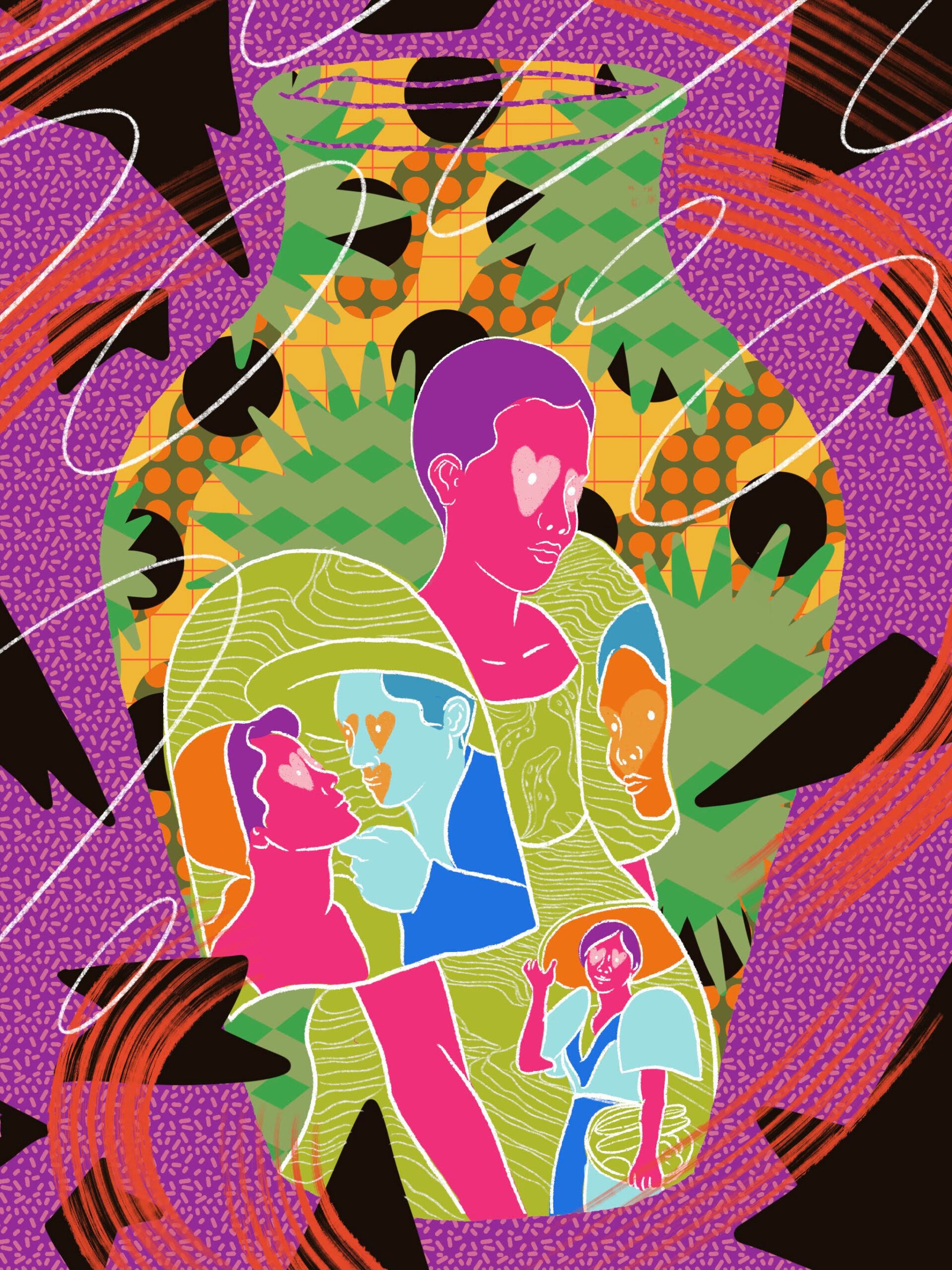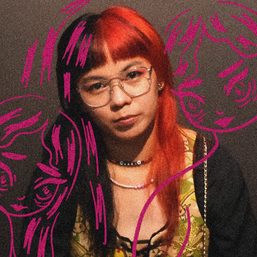SUMMARY
This is AI generated summarization, which may have errors. For context, always refer to the full article.

London’s gastronomic epicenter, Soho, has recently welcomed a new Filipino restaurant that has been the talk of the town for two reasons. Kasa & Kin, conceptualized by the owners behind Romulo Cafe, has opened with a flair of contemporary Filipino cuisine, developed by a team that includes a Michelin-starred chef. Equally stunning is the expansive mural that wraps the restaurant interior in kaleidoscopic patterns, harlequin imageries, and the bright plumage of an omnipresent Ibong Adarna, leaving guests in awe throughout their stay.
The artist behind the mural is a 31-year-old Filipino whom people call by his art. Kulay Labitigan is a rising visual artist and “experiential” illustrator in London with a knack for storytelling.

Born in Tayabas, Quezon, Kulay finished Fine Arts from the University of the Philippines Diliman and arrived in the UK on a scholarship grant to study MA in Narrative Environments at Central Saint Martins-University of the Arts London, one of the world’s top art and design schools.
The mural design for Kasa & Kin was specifically special for Kulay as an immigrant living in the UK. “Adarna symbolizes a multitude of meanings for different people. In Francisco Balagtas’ tale, the mythical bird was a healer of the ailing king, a reference to the many Filipino medical professionals who are in the UK’s health service. The bird is also closely associated with nesting, which comes back to the meaning of Kasa & Kin being a home. But what resonates to me more is the bird as an animal of flight and migration. These are powerful reflections for every Filipino and non-Filipino dining in the restaurant,” Kulay muses.
Beyond the mural, he also helped translate his art into food (an Adarna drink) and bring it into customers’ phones (an Instagram Adarna mask filter) – taking diners on a unique journey of senses and introspection as they enjoy Filipino cuisine.

Kulay’s works span nearly 15 years, exploring various media and areas such as theatrical production, 3D installation arts, and illustrations. Some of his illustrations are featured in select Jollibee stores across the UK including London.
He likes to use the word “creative talesmith” to describe what he does. From the stories and meanings he conceptualizes, Kulay creates a temporal environment where people can experience art. Like how writers choose their words to convey stories, he is fascinated with narrative arcs and how these can be best portrayed through different media.
Kulay grew up in Tayabas to a family of handicraft makers, farmers, and entrepreneurs. In a quaint town with deep local traditions, he often spent his childhood replicating the religious imageries drawn on the ceiling of the 16th century San Miguel de Arcangel Basilica and watching plays and shows in the local theater. That was when he discovered art.
After studying for two years in UP Los Baños, he transferred to UP Diliman and specialized in industrial design. It was a period when he began designing theatrical sets for independent and professional shows.

Taken under the wing of top scenographer and production designer Gino Gonzales, Kulay continued his reflection and learning about the potency of Filipino soft power and culture. He was among the Philippines’ youth ambassadors in the 40th Ship for Southeast Asian Youth Program (SSEAYP) 2013, a months-long cultural youth exchange scheme supported by the Japanese Government.
In London, he was mentored by the late Filipino visual artist, David Medalla, known for his “auto-creative” artworks and participatory ideas, founder of the London Biennale, and highly respected within Europe’s artistic community.
“As a ‘creative talesmith,’ I find immense joy and fulfillment in connecting dots, developing narratives, and applying them to real-world scenarios. I do believe that above anything, story is the universal language. It is the currency of our time. Sometimes, stories do not even need words to be told. From actions to events, carefully sequenced segments trigger our emotion and consciousness, shaping our understanding of our world and ultimately our being. This is how stories become transformative,” says Kulay.

Including the mural in Kasa & Kin, many of Kulay’s proudest works are references to the Philippines, his childhood town in Quezon, and musings of home manifested through various media – all concocted into sensory experiences.
The UP School of Fine Arts’ best thesis in industrial design in 2012, which he won, was a set of toys for adults he made to instill a greater appreciation of cultural monuments in Tayabas. In 2017, he designed the set and identity for a Filipino community festival in Blacktown, Australia called Mahal Kita Future Bayan.
In Tayabas, he mounted his own shadow-in-the-street project during Maundy Thursdays for three consecutive years, creating shadow folkloric images on empty abandoned walls along highways when locals were making the annual hours-long panata walk to Kamay Ni Hesus Shrine in Lucban, Quezon.
“In 2015 I ventured into a creative soul searching. I packed my whole life in a 30-kilogram suitcase and hopped on a plane headed to the other side of the globe, a place I have never been to but I now call home. Studying design in London afforded me the opportunity to understand my creative voice, fine-tune my artistic style and methods, and discover that everything I have been looking for in this journey are things I already have and already am.
“This extraordinary experience made me realize that home transcends the physical and that my own roots and life story of growing up in rural Philippines – including my anecdotes as a Southeast Asian gay man and all fragments of my personal concept of home – informs my creative practice. I am proud to see that this has made my work relevant, distinct, and most importantly, a medium that connects and gives people who experience my art a sense of belonging,” explains Kulay. – Rappler.com
Add a comment
How does this make you feel?








![[Ilonggo Notes] The foremost Filipino engraver, sadly unremembered, needs to be given his due](https://www.rappler.com/tachyon/2024/03/Figueroa-.jpg?resize=257%2C257&crop=265px%2C0px%2C720px%2C720px)

There are no comments yet. Add your comment to start the conversation.